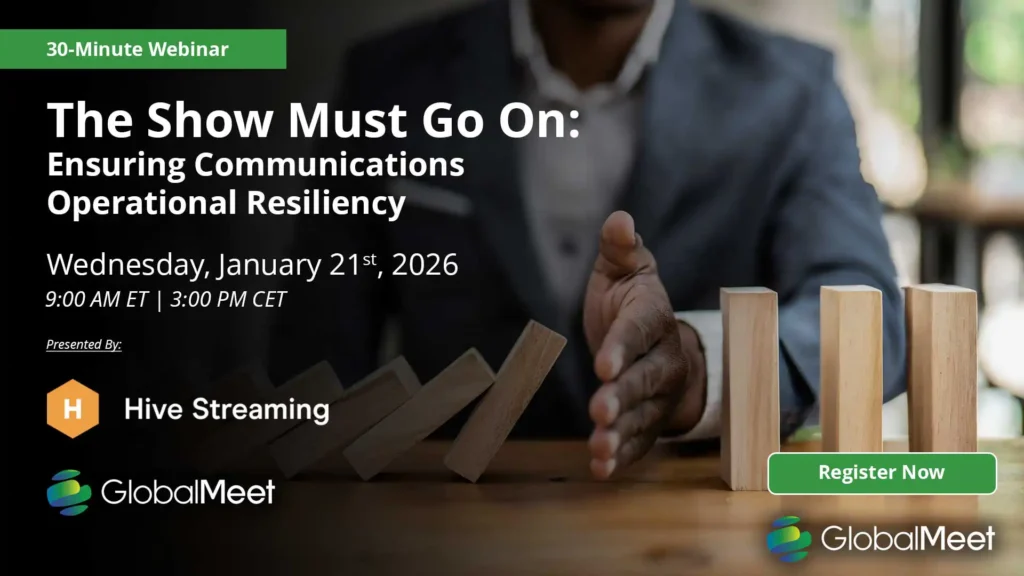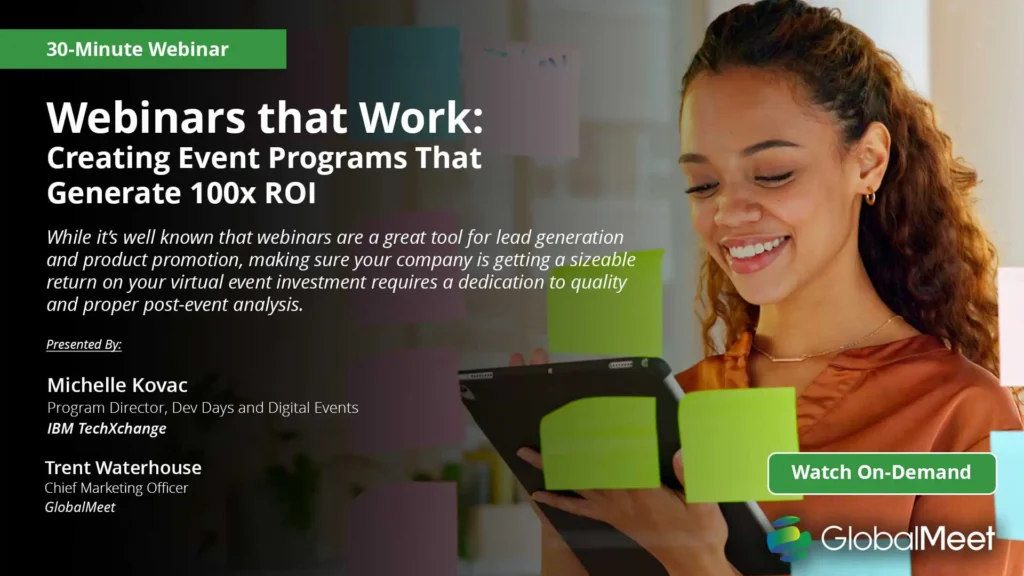
Navigating Regulatory Compliance in Virtual Pharma Events
- by GlobalMeet Blog Team
- ,
In an increasingly digital corporate landscape, the pharmaceutical industry has embraced virtual events as a powerful way to communicate with healthcare professionals, patients, regulators, and internal teams. From product launches and new product education, to advisory boards and clinical trial meetings, virtual pharma events are now a mainstay. However, alongside their many advantages, efficiency, scalability, and cost effectiveness, comes a critical responsibility. Regulatory compliance.
Unlike many industries, the pharmaceutical landscape operates within a tightly governed regulatory framework. These regulations effect every aspect of communication, including digital interactions such as virtual events. When moving online, therefore, companies must adapt their processes to suit the unique environment of virtual platforms, and meet strict data security requirements to remain compliant.
The Regulatory Landscape
Pharmaceutical companies are bound by a complex series of global, regional, and national regulations that drive ethical production, scientific integrity, and data protection. These regulations impact not only what can be shared during virtual events, but also how information is stored, accessed, and documented.
Pharmaceutical Regulators
Every subsection of the pharmaceutical industry has its own set of regulations, however there are some main overarching regulatory requirements that all pharmaceutical organizations should be aware of.
Government legislation such as the Health Insurance Portability and Accountability Act (HIPPA) and the General Data Protection Regulations (GDPR) provide important regulatory guidance for a wide range of organizations. Similarly, the Food and Drug Administration (FDA) and the European Medicines Agency (EMA) regulate and oversee many aspects of the pharmaceutical landscape.
Virtual pharma events must be planned with these regulatory frameworks in mind, ensuring compliance without compromising on the quality or engagement of the experience.
The Ongoing Compliance Challenge
Location Disparity
One of the key benefits of virtual events is their ability to bring people together from a global network. However, an international audience requires careful adherence to a complex spread of both local and global regulations at the same time. Event organizers must consider regional consent and data protection specifications such as GDPR and CCPA, alongside overarching regulatory requirements, especially when planning registration, sign-up, and recording processes.
Content Approval
Some regulatory bodies provide strict guidelines on how pharmaceutical content can be shared, and to whom, with further restrictions then applied to how the material can be used following an event to ensure that false or confidential information doesn’t fall into the wrong hands.
Speaker and Content Vetting
All speakers should be trained in what they can and cannot share in an event setting, particularly when promotional materials are involved. Content should be thoroughly reviewed and approved by a Medical Legal and Regulatory team well in advance.
Attendee Identification and Verification
Ensuring that only appropriate, verified healthcare professionals (HCPs) attend specific sessions, especially those involving clinical trials or promotional content, is essential. For enhanced control choose a platform that allows you to create multiple different event tracks inside the same unified event portal, so you can ensure that everyone is where they should be.
Documentation and Audit Trails
Regulatory bodies may require detailed logs of event materials and recordings, attendee engagement data, and consent logs. It’s important to keep a detailed record to avoid compliance breaches and fines. For streamlined compliance and auditing choose a platform with integrated data and analytics as standard, along with API-based integration to other portions of the tech stack.
Ensuring Data Security
Virtual events require the collection and transmission of sensitive and confidential data. A security breach could expose protected information, resulting in both significant fines and reputational damage, so ensuring your events are secure is not negotiable.
Enterprise grade security features to look for in your chosen event platform include:
- End-to-end Encryption
- Two factor authentication
- Features supporting regulatory compliance with Data Protection laws
- Secure Data Storage
- Content Access Controls
- Regular penetration testing and vulnerability scanning.
It is also key to ensure that chosen event vendors and platforms have robust data processing agreements in place, clearly outlining responsibilities and liability in the event of a breach.
Balancing Compliance with Engagement
One of the biggest challenges in virtual pharma events is maintaining engagement without compromising on compliance. To maximize engagement potential, the best virtual event platforms have a number of integrated features that encourage participation without sacrificing security.
Live, Moderated Q&As
By allowing your audience to submit questions to be answered live by panels and speakers you can start and maintain valuable discussions. Platforms that keep questions private, visible only to the moderators or speakers, allow for seamless control and compliance as well as keeping a record of items that require more in-depth responses after the event.
Polls
Polls are a simple way of checking your audience familiarity with a subject, confirming understanding at the end of a session, and gaining valuable feedback to support post-even analysis. Look for a platform that gives you control over when polls are launched, and what metrics they capture.
Surveys
Feedback is crucial to improving event outcomes, and surveys are the perfect tool for collecting session information and planning future events. For compliance, surveys should be customizable, response limited, and subject to the same access controls as main event content.
Downloadable Collateral
Offering event content to be downloaded for future reference is a great way to boost engagement and retention. By using a platform that allows materials to be downloaded after the event you can also expand the reach and potential ROI of your content.
Conclusion
Virtual events are proving to be a valuable tool for pharmaceutical companies and their stakeholders by enhancing event flexibility and reach without compromising on security. To make them truly effective, regulatory compliance should be embedded into every step, from planning and content creation to execution and post-event analysis.
By understanding the core regulations, investing in a secure and compliant platform, and building a compliance-first culture among both internal teams and partners, you can deliver impactful events that meet the highest standards.



